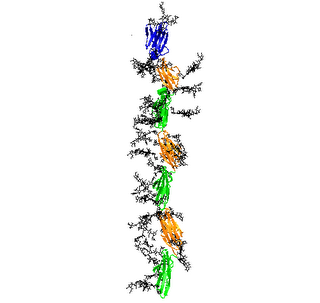
Yesterday, I wrote about how the surgical procedure total mesorectal excision reduces the chances of local rectal cancer recurrence to considerably less than 10%.
That was yesterday. Today, I discovered that the Archives of Surgical Oncology has recently suggested that carcinoembryonic antigen (CEA) levels following surgery are associated with local recurrence and survival for Stage III rectal cancer patients (me). According to the article, a large portion (presumably more than 10%) of Stage III rectal cancer patients experience a recurrence. Levels of the protein CEA may help oncologists determine who is likely to develop recurrence or who is likely to have a poor prognosis.
631 patients studied in South Korea had CEA levels taken 7 days before and 7 days after. If their levels were high prior to surgery and continued to rise after surgery, then their chances for survival were greatly diminished.
I don't happen to know anything about my CEA levels prior to or following surgery. I don't even know whether CEA is being monitored during my chemotherapy treatments. But I have called my supportive care coordinator and should find out within a couple of days what the situation is.
In the meantime, I feel somewhat confused about the obvious discrepency about survival statistics for Stage III rectal cancer patients between what is said about total mesorectal excision (TME) and what is being reported about CEA levels. Perhaps there is no contradiction. After all, one could easily have a TME and low levels of CEA.
One way or the other, these are the kinds of questions and concerns that will preoccupy me during the recovery transition period following my last chemotherapy treatment.

No comments:
Post a Comment